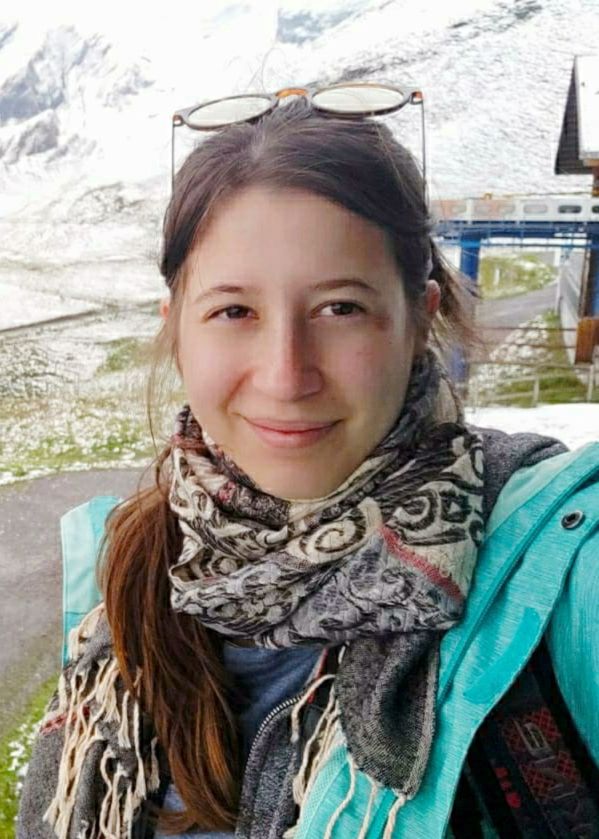Carolina Fernandes Moreira de Carvalho - Research Interests and Education
My main area of interest is cellular biology, physiology and metabolism, particularly of microalgae. In previous work, I studied how cyanobacteria responded to blue light and how and why this affected their photosynthetic pathway. Now, I work with Dr. Sarah Pati on improving the understanding of the interaction between O2 consumption and the stable isotope fractionation of O2 across a variety of O2 consuming enzymes.
Molecular oxygen (O2) is one of the most important electron acceptors for a variety of biotic and abiotic processes in the environment, playing a vital role in numerous biogeochemical processes. Because oxygen atoms of O2 do notexchange with water or other gases, changes in the isotopic composition of O2 exclusively result from diffusive transport and O2 consumption or formation processes. This makes stable isotope analysis of O2 a valuable tool to track and identify O2 consumption and formation processes in the environment. A wide range of oxygen isotopic fractionation associated with biological O2 consumption (18ɛO2) has been reported in field and laboratory studies. While the observed variability in 18ɛO2 values has mainly been attributed to the different types of respiring organisms, the underlying mechanisms causing this variability are still unclear. All biological O2 consumption, including respiration, detoxification, and biosynthesis, occurs at the enzyme-level. Therefore, the main goal of my work is to apply O2 stable isotope analysis to a systematic selection of O2 consuming enzymes, in order to improve our molecular understanding of isotopic fractionation of O2 at lowest level of biological complexity, the enzyme-level. However, there are major limitations affecting the stable isotope analysis of O2, primarily, the lack of isotopic reference materials for isotope-ratio calibration. Thus, we have also developed an alternative approach for isotope-ratio calibration using photosynthetic production of O2 from source waters with different δ18O and δ17O values, and improved stable isotope analysis of O2 with CF-IRMS methods. Currently, I am investigating oxygen isotope fractionation of O2 in pure bacterial cultures containing different O2 consuming enzymes. With this project we hope to improve the understanding and generalization of the isotopic fractionation of O2 at the enzyme- and, ultimately, at the organism-level.
Education Background
- Apr 2020 - now: PhD candidate at the University of Basel, Switzerland, in the Department of Environmental Sciences (Group of Prof. Dr. Moritz Lehmann)
- Mar 2019 - Nov 2019: Research assistant at the Swiss Federal Institute of Aquatic Science (EAWAG)
- Jan 2018 - Oct 2018: Erasmus Studies at the University of Ghent, BE
- Sep 2016 - Oct 2018: Master of Science in Limnology and Oceanography at University of Amsterdam, NL
- Jan 2016 - Jul 2016: Erasmus studies at the university of Wageningen, NL
- Sep 2013 - Jul 2016: Bachelor of Science in Marine Biology at the University if Algarve, PT
Publications
Luimstra, V.M., Schuurmans, J.M., de Carvalho, C.F.M., Matthijs, H.C., Hellingwerf, K.J. and Huisman, J., 2019. Exploring the low photosynthetic efficiency of cyanobacteria in blue light using a mutant lacking phycobilisomes. Photosynthesis Research, 141, pp.291-301; https://doi.org/10.1007/s11120-019-00630-z
Schulze, P.S., Carvalho, C.F.M., Pereira, H., Gangadhar, K.N., Schüler, L.M., Santos, T.F., Varela, J.C. and Barreira, L., 2017. Urban wastewater treatment by Tetraselmis sp. CTP4 (Chlorophyta). Bioresource technology, 223, pp.175-183; https://doi.org/10.1016/j.biortech.2016.10.027

Carolina Fernandes Moreira de Carvalho
Biogeochemistry / University Basel
Bernoullistrasse 30
CH-4056 Basel
Tel. +41 (0)61 207 36 29
Defence Carolina Fernandes
Carolina Fernandes very successfully defended her outstanding PhD work on Isotope fractionation of molecular oxygen during enzymatic O2 consuming processes in aquatic environments. Congratulations Carolina!!

